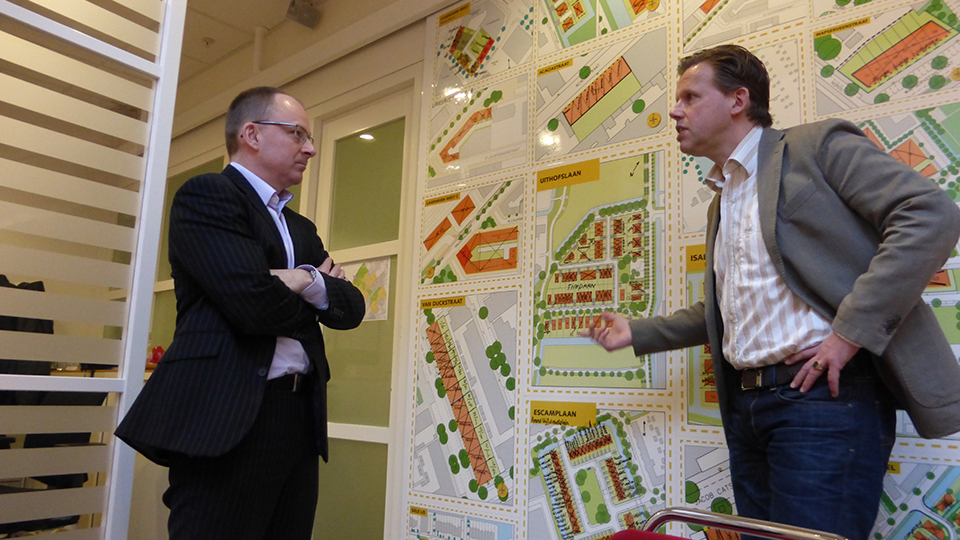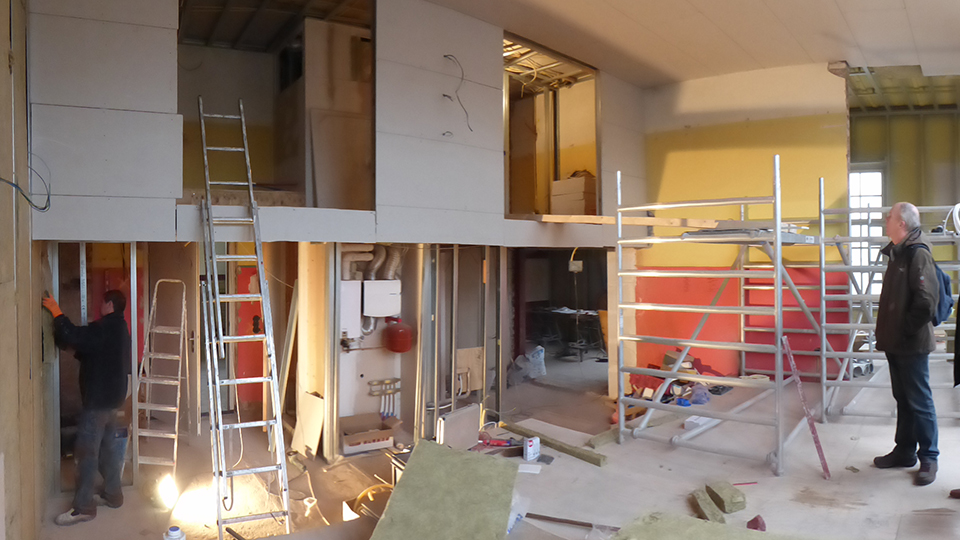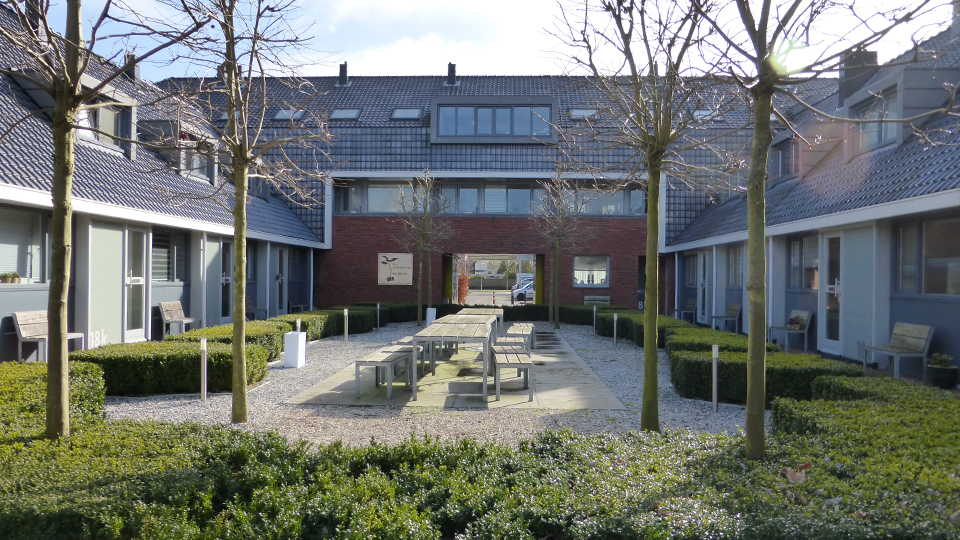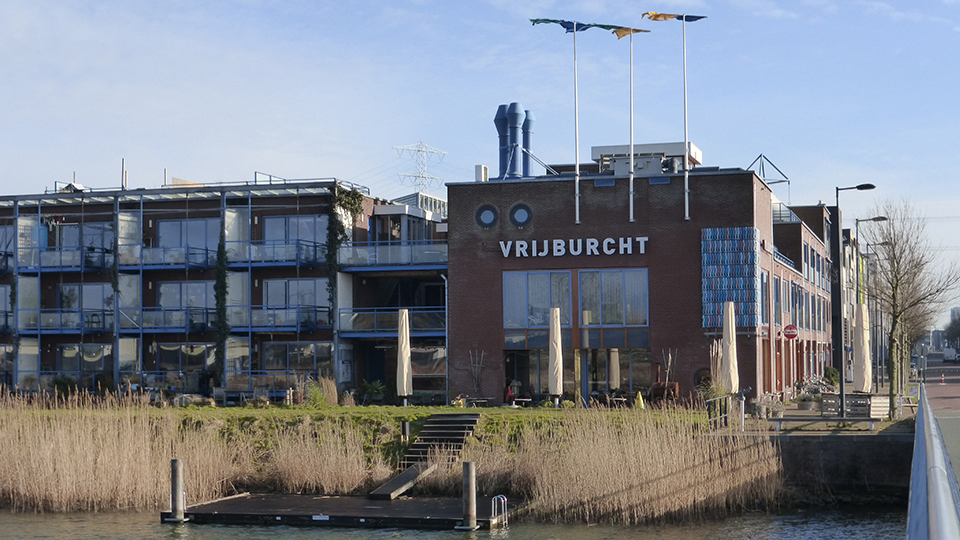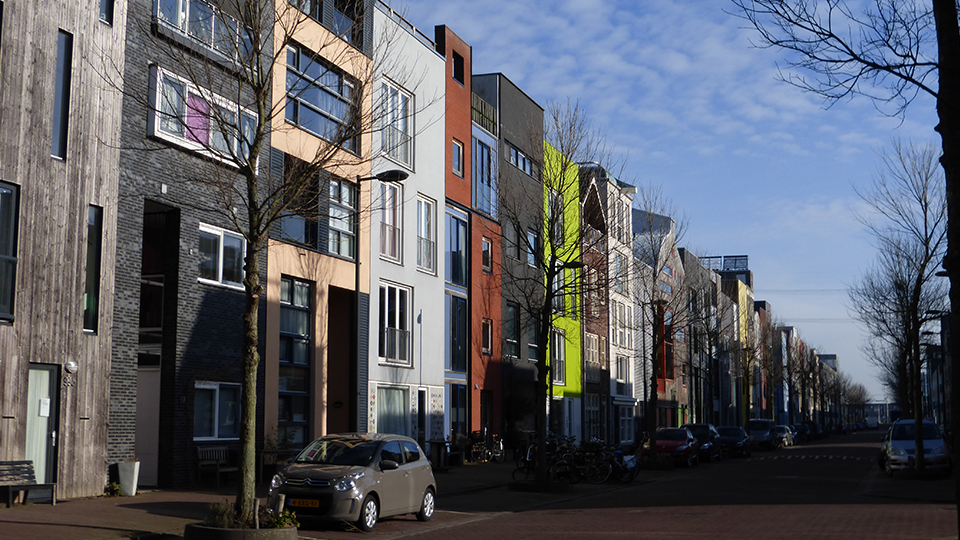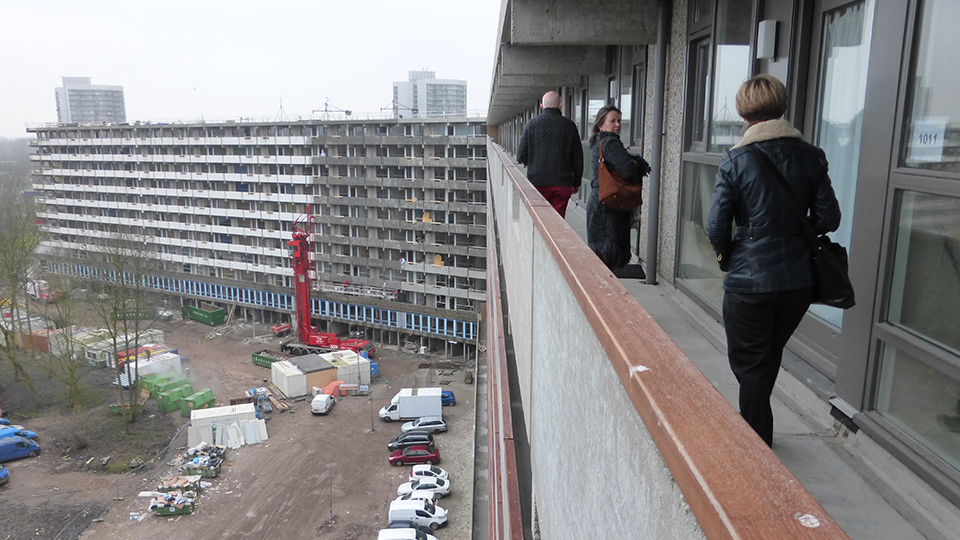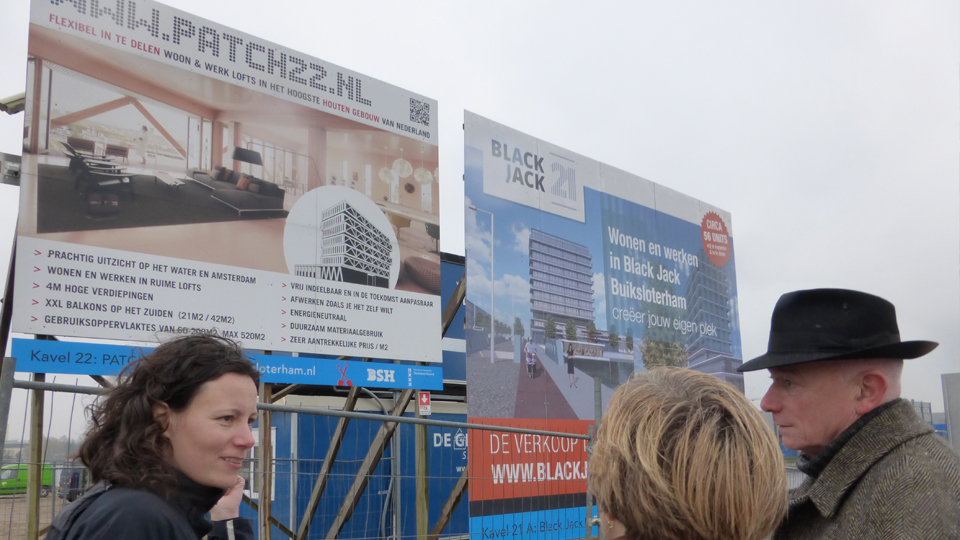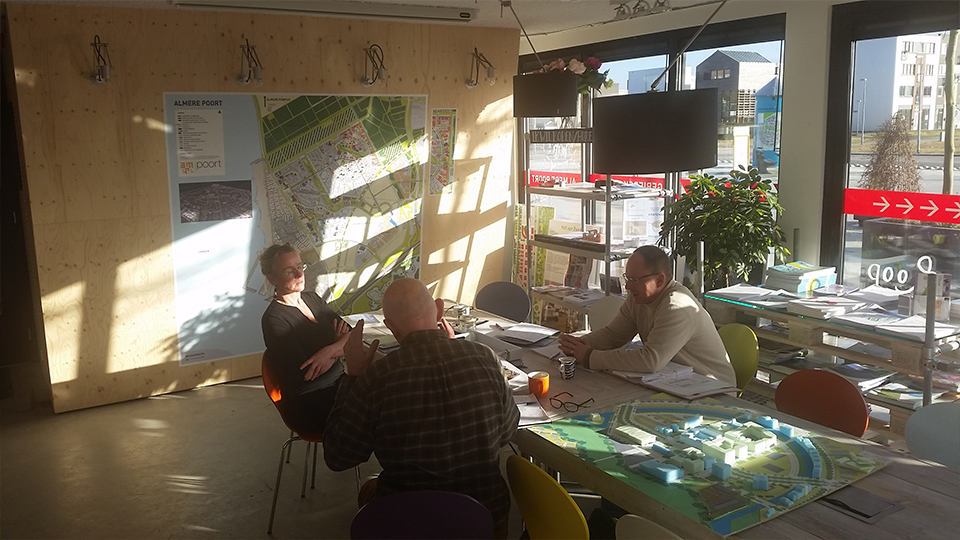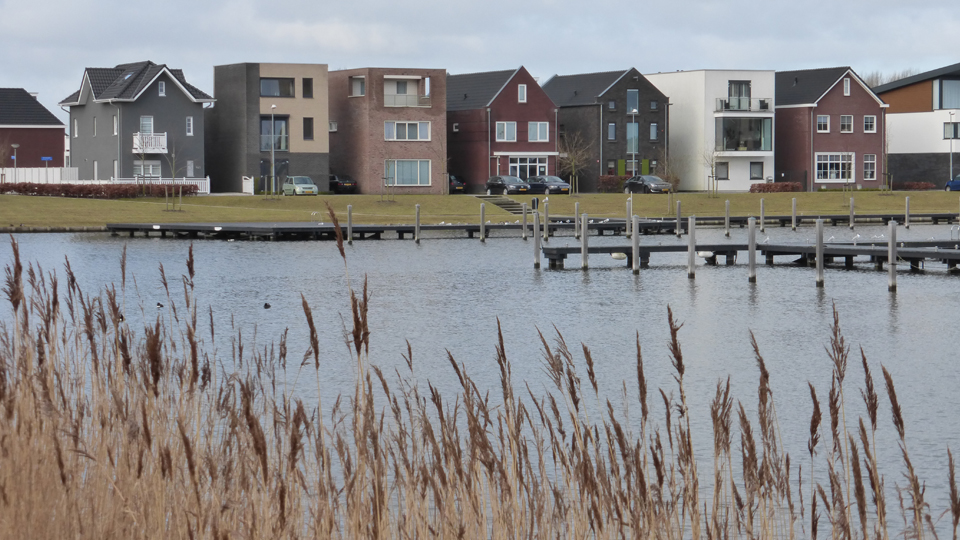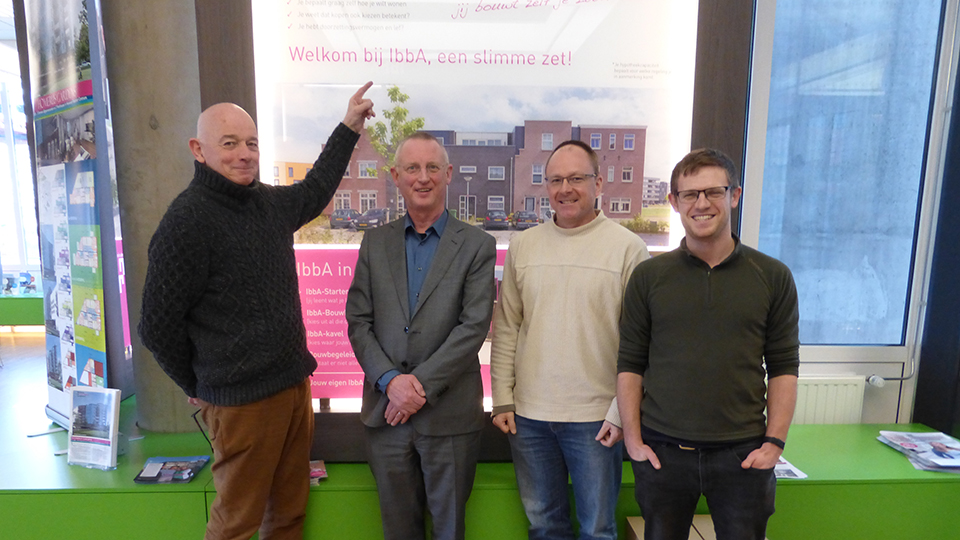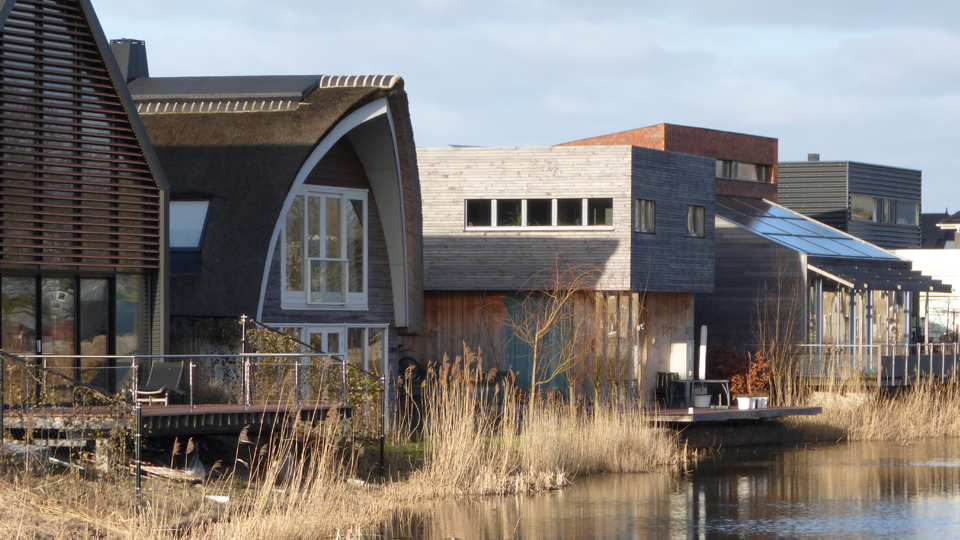The NaCSBA research team completed its second major overseas study trip at the end of February, visiting a range of councils and pioneering projects across the Netherlands and northern Germany.
The intensive six day long itinerary included inspecting four interesting self build projects in The Hague, one of Germany’s newest and most modern custom/self build show villages, an innovative large-scale serviced plot development near Bonn, and about a dozen projects in and around Amsterdam. Meetings were held with the head of the self build ‘Expert Team’ in the Dutch Government, four banks (three active in Germany and one in Holland), and a wide range of enablers, local councils, and affordable housing providers. On our final day we toured the latest self build areas in Almere and met with the sales and promotion team at the city’s “Plot Shop”. Between them the organisations we met are bringing forward thousands of self build opportunities by employing a range of clever techniques, that deliver a wide range of homes, from very affordable ones to epic Grand Designs and inner city regeneration developments.
So what did we learn?
- High-level political support is essential if a council wants to launch a custom/self build initiative. It’s also likely that a council will have to develop a new culture – in Holland self builders are seen as ‘investors’ in their local community and are treated by councils as valued customers;
- Simplicity and clarity are key – in both countries the planning system is much easier to understand and delivers greater certainty for developers and would-be self builders. Design codes are used widely and decisions are taken quickly. Councils also explain their plot opportunities very clearly and succinctly and make affordable plots available to local people
- The German land reallocation model which is used widely by Councils is something we will be examining in detail to assess how it could be applied locally.
- The banks in both countries treat self builders in exactly the same as they do the purchasers of a home built by a big developer. They don’t see self builders as being any riskier to lend to, and they don’t charge them any more.
- The German Government also makes available low interest loans which can be combined with mortgages. Tax incentives are also available.
- There are a number of ways councils help deliver low cost self build opportunities – for example some encourage ‘self refurb’ projects where redundant office and school buildings can be converted to residential use by self builders. And there is a scheme in Holland where people on incomes of just £21,000 a year can get a second ‘top up’ interest free loan to help them afford to build a modest home for themselves.
- There are several new professionals emerging who help self builders. For example there are ‘technical coaches’ who provide independent practical advice for self builders on the technical/construction challenges on their project; and there are now a number of experienced ‘process advisors’ who assist groups who want to build collectively.
- In Germany there are about 20 permanent exhibition sites where as many as 50-60 highly sustainable self build/kit show homes are on display. These attract hundreds of thousands of visitors a year, stimulate consumer interest in building and help promote the construction industry.
We are now beginning to develop our ideas as to how all this information (and a lot of other practical material) can be best assembled into a practical Toolkit to help UK councils, housing providers and communities. We have also started to assess the way custom/self build is financed in other countries which will inform discussions with our banking sector and the Government later in the year. In March we hope to provide some interim guidance, that summarises some of the key learning points we have picked up so far.
We are now nearly half way through the international research phase, and over the coming weeks we will be visiting projects and initiatives in France, Belgium, and further sites in the Netherlands and Germany to broaden our understanding. We have also commissioned some work on how the self/custom build sector works in Australia and the USA.
And we have already begun to engage with UK councils – we are making good progress to develop a comprehensive data-base of all Councils in England to track progress they are making to implement the Government’s policies and offer help. By the end of March we will have visited around 20 Councils to provide assistance on how they can develop their various self/custom build initiatives.
Images:

